
News List
ISSAAS-SEAPPRO Joint International Seminar and Congress 2022
3-5 November 2022, the Department of Plant Protection with the SEAPPRO (Southeast Asia Plant Protection) program in collaboration with The International Society for Southeast Asian Agricultural Sciences (ISSAAS) and the Society for Agricultural Education Research Development Abroad (SAEDA) held a Joint International Seminar and Congress 2022 with the theme "Smart Agriculture: Challenges and Opportunities"
This Joint International Seminar and Congress is a combination of two international events from the two institutions, namely the Southeast Asia Plant Protection Conference initiated by the Department of Plant Protection, Faculty of Agriculture - IPB University and the annual Congress from ISSAAS, most of the participants are members of ISSAAS who come from Southeast Asian countries, even so there are some participants who come from countries outside Southeast Asia.
Quoting from the official website of ISSAAS-SEAPPRO (https://seappro.ipb.ac.id) the essence of this activity is as follows: "The Southeast Asia Plant Protection Conference brings together groups of professionals from many countries with a common interest in promoting food security for all nations around the globe.Countries in the Southeast Asia have been considered as world food sources due to their agricultural potential.However, pests and diseases problems under tropical climate become a challenge in order to maintain crop productivity.Advancement of science and smart technology helps the development of pests and disease control method as well as increasing plant productivity Sharing experiences and discussing plant protection and other agricultural and environment-related sciences and technologies is expected during the conference/seminar In addition, initiation for establishment of science community for plant protection and other agricultural sciences among Southeast Asian countries becomes an important goal", therefore ISSAAS-SEAPPRO presents a keynote speaker who is an expert in the field of smart agriculture.
The first keynote speaker was an expert from the International Rice Research Institute (IRRI), namely Dr. Inez Slamet-Loedin who presented material on "Broad resistance to rice bacterial leaf blight through genome editing and pathotracer"
The second keynote speaker is an expert from IPB University, namely Prof. Dr. Yandra Arkeman who presented material "Implementation of Artificial Intelligence and Blockchain on Agricultural Supply Chain Management",
In addition to the two keynote speakers, this event also presented 6 invited speakers from ISSAAS member countries, among others
Dr. Ramadhona Saville - ISSAAS Japan Chapter: "Shaping A Better Primary Industry Through Smart Technologies"
Dr. Nur Azura binti Adam - ISSAAS Malaysia Chapter "Transformation of Agricultural Sector in Malaysia Through Smart Agriculture Approach"
Dr. Benny Mendoza Corcolon
ISSAAS Philippines Chapter - "Smart Agriculture and Its Application in Commercial Banana Production"
Dr. Wanrat Abdullakasim
ISSAAS Thailand Chapter - "Smart Agriculture: Thailand's Implementation and Future Outlook"
Dr. Nguyen Thi Thuy Hanh
ISSAAS Vietnam Chapter - "Smart agriculture in Vietnam and the role of the University"
Prof. Dr. Suryo Wiyono
ISSAAS Indonesia Chapter - "Plant Diseases Challenges in The Future Agriculture And Novel Strategy Approaches"
At this Joint Seminar and Congress, practitioners were also invited from companies in the agricultural sector to become invited speakers, including:
Mr. Naritaka Matsubara
PT. Agricon/Mitsui Agrochemical - "TENEBENAL TM: New Pesticide for Control of Lepidoptera Pest"
Fizrul Indra Lubis
PT. Sawit Sumbermas Sarana - "Development of Volatile Organic Compounds Monitoring based on Smart Benzene Detector for Oil Palm Plantation"
Ir. Fauzan Khumaedi
PT. Great Giant Pineapple - "Smart Agriculture Practices of Pineapple Plantation at PT Great Giant Pineapple (GGP), Lampung - Indonesia"
M. Candra Putra
PT. Syngenta Indonesia - “Embracing Digital Agriculture in R&D Activity”
The ISSAAS-SEAPPRO Joint International Seminar and Congress was held for three days, the first day was seminars and congresses, the second day was a parallel session, and the third day was a field trip to a biological pesticide factory, namely PT. Prima Agrotech.
ISSAAS-SEAPPRO Joint International Seminar and Congress is sponsored by PT. Syngenta Indonesia, PT. Agricon, CropLife Indonesia, PT. Sawit Sumbermas Sarana, CropCare, Alishter, PT. Inti Everspring and PT. Prima Agrotech
The following is a snapshot of the ISSAAS-SEAPPRO activity gallery:
IPB News: Saved Hundreds of Hectares, Bioimmunization of IPB University's Innovation Seeds Successfully Overcome Rice Stem Borer
IPB University's innovation seed bio-immunization technology applied in Subang, West Java has produced results by saving hundreds of hectares of farmer's land. This technology is able to overcome the rice stem borer which has become a chronic problem for farmers in Ciasem Baru Village and Ciasem Girang Village, Ciasem District, Subang Regency, West Java.
Technology assistance was carried out by IPB University students who were guided by Prof. Suryo Wiyono and Prof. Widodo. Both are IPB University plant protection experts. Prof. Suryo said there were two principles of stem borer management, namely bio-immunization and collecting egg clusters in the nursery.
“Collecting clusters of eggs in nurseries to reduce the initial population of pests. Meanwhile, bio-immunization increases rice resistance to pests and diseases. Both are IPB University's well-established technologies and are ready to be applied massively to stem borer and blast disease endemic areas," explained Prof. Suryo.
Bio-immunization is a seed treatment technology with endophytic microbes and plant growth promoting rhizobacteria (PGPR). This technology makes plants resistant to pests and diseases.
Through the Kedai Reka Patriot Pangan IPB University 2022 program entitled Appropriate Technology Application Program to Support National Food Security through One Village One CEO (OVOC). The program involved eight IPB University students and was implemented last December 2022. This activity also involved four farmer groups with 51 people and 200 ha of rice fields.
In mid-March 2023, when the plants were approaching panicle, this program showed its success. Almost all farmers participating in this program said that this technology was effective in controlling rice stem borers.
"The seed bio-immunization technology has had a good effect on the growth of rice plants, starting from the nursery where the germination rate has almost reached 100 percent. Seedling growth is also evenly distributed, roots grow thicker," said Vector, who is a farmer participating in the program
In addition, he continued, paddy fields treated with seed bio-immunization were more resistant to attack by rice stem borer than rice fields without treatment.
Damis, a farmer who uses bio-immunization technology, also compares the performance of his rice cultivation. He suspects that nurseries treated with seed bio-immunization are not favored by stem borer moths for laying eggs. In fact, his and other farmer's (Tono) seed nurseries are located close to each other.
“There are far fewer stem borer attacks on my land than Pak Tono's. In fact, our land is only separated by rice field bunds. This incident was obtained after I applied bio-immunization technology, while Pak Tono's rice fields did not apply this technology," said Damis, another farmer.
On the other hand, the sneak attack between Damis and Tono's land also looks different. On Damis' land, sundeep attacks tend to be few and can be counted. Meanwhile, Tono's land tends to be evenly distributed in each clump. Sundep attack on plots with seed bio-immunization treatment was much smaller than on conventional fields.
Tillers attacked by sundep in plots without treatment reached 67.30 percent. Meanwhile, in the bio-immunization treatment it was only 21.59 percent. The other paddy field, belonging to the bio-immunized Casmudi, is located at the border of the village, safe from borers, while one next door is heavily infested.
"The IPB University program is very good and generally successful. The stem borer in the rice fields where the activity was located was proven to be under control compared to the others. In the future, the technology assistance program from universities for farmers needs to be expanded and intensified. The reason is that now the challenges faced by rice farmers are getting more severe, the climate is increasingly erratic, pests and diseases are getting more severe," said H Mad Anwar, SP, MP, Head of the Ciasem District Agriculture Service Technical Implementation Unit (UPTD). IPB News
Initiation of PTN-BRIN Collaboration
Wednesday, 08 March 2023. A number of staff from the National Research and Innovation Agency (BRIN) made a visit to the Department of Plant Protection (PTN), Faculty of Agriculture - IPB University with the aim of initiating collaboration in developing Entomology science. The collaboration is expected to have a broad impact apart from increasing the value of international publications as well as increasing the patents produced so that they can be utilized by the public.
Researches that can be carried out include the development of biological control agents, the disclosure of semi-chemical bioactive compounds as pest control, the development of biopesticides and their formulations, the development of an Internet of Things (IoT)-based Early Warning System, etc. In addition to cooperation in the field of research, BRIN also has facilities to accept apprentice students and students who wish to take part in Independent Learning, Independent Campus (MBKM).
Bogor Raya Elementary School Visit to the Soemartono Sosromarsono Insect Museum
Monday, 27 February 2023. 45 elementary school students at Bogor Raya School visited the Soemartono Sosromarsono Insect Museum Department of Plant Protection, Faculty of Agriculture - IPB University, with the aim of learning with the theme Sharing The Planet which discusses the characteristics and roles of insects and other small animals to 45 students who are all first grade students accompanied by four supervisors and guided by PTN students.
The Soemartono Sosromarsono insect museum is a suitable place to learn about the characteristics of insects because of the collection of more than 1000 species of insects originating from Indonesia and abroad. During this visit, it was seen that all the students were very enthusiastic about listening to explanations about the insect collections, apart from seeing the preserved insect collections, these students also interacted with the live insect collections in this museum.


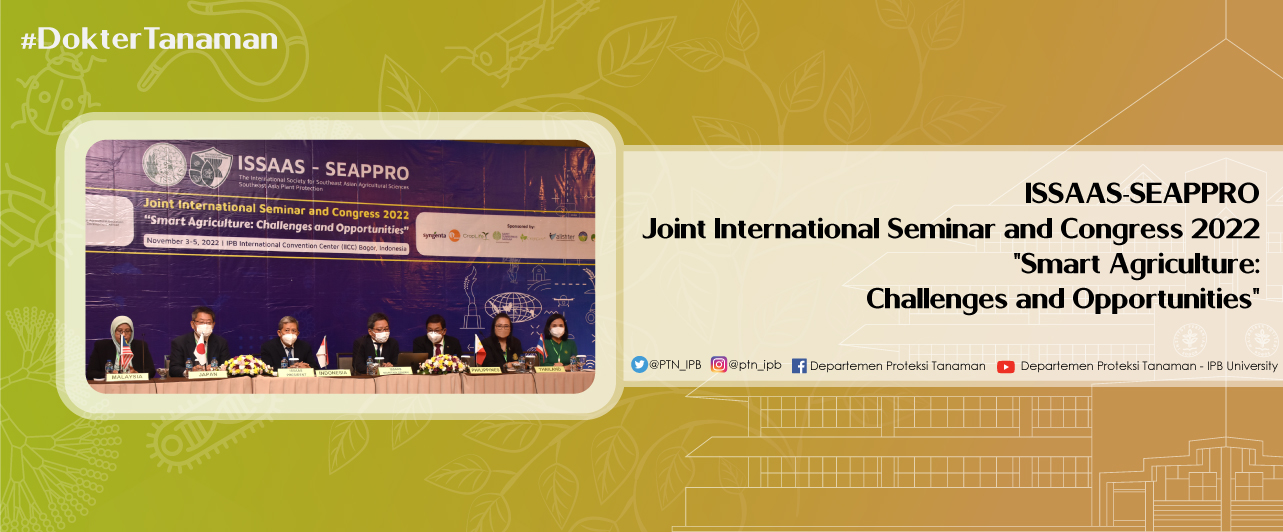


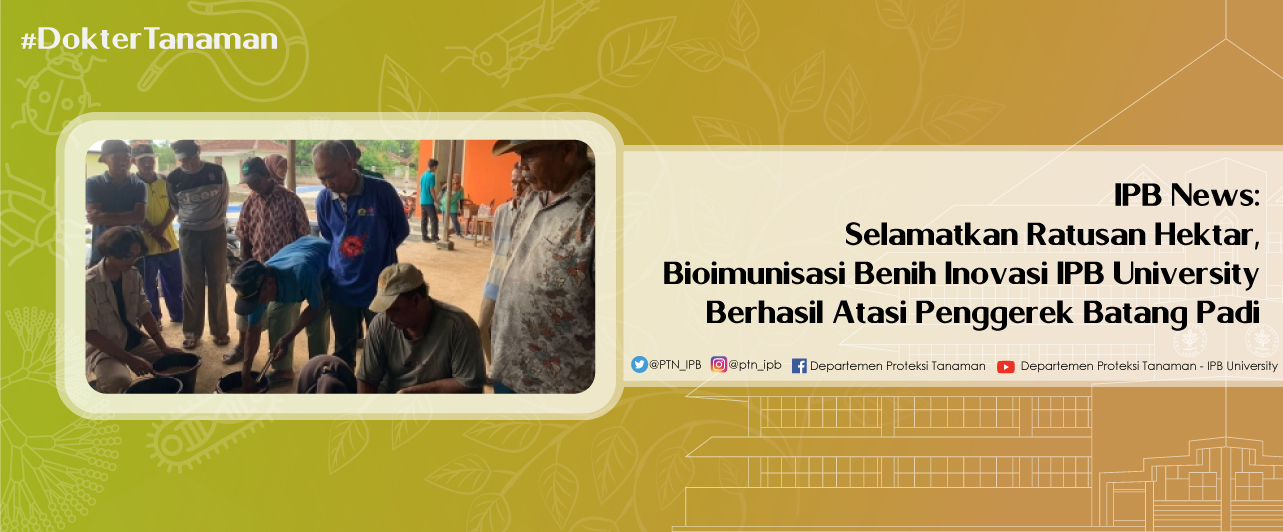
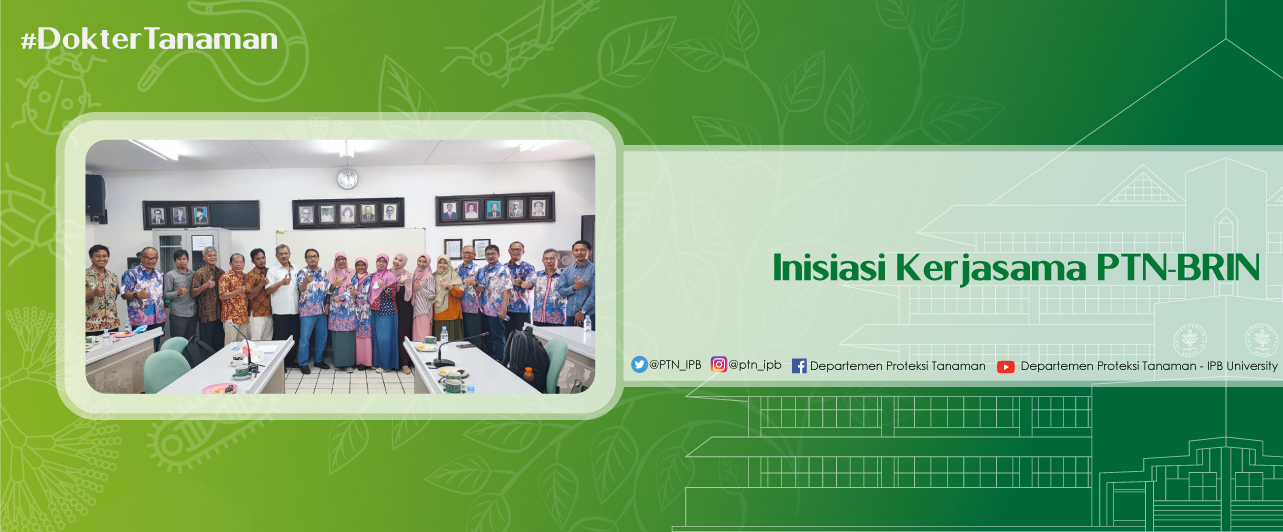
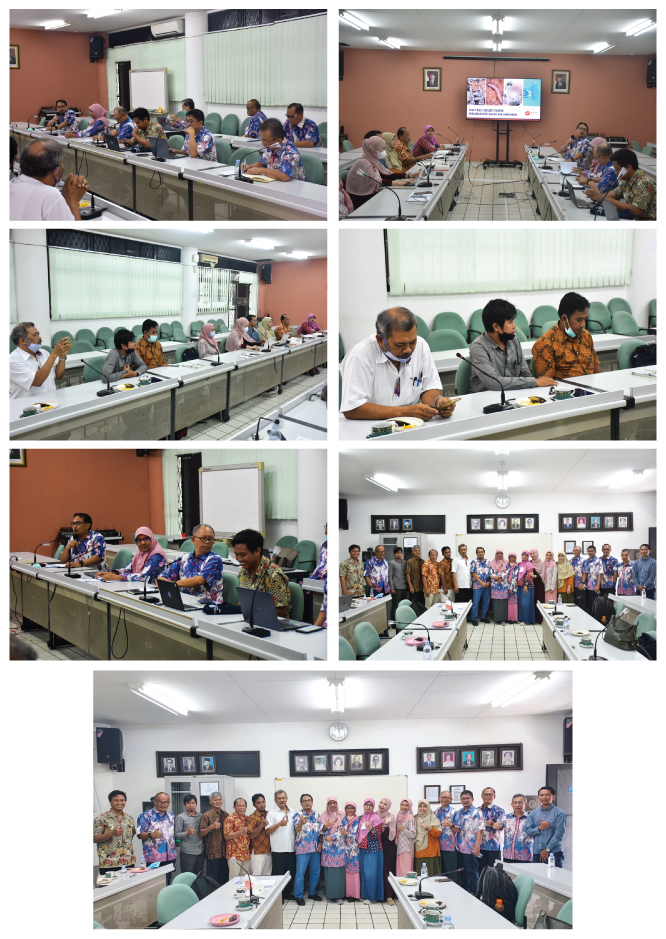
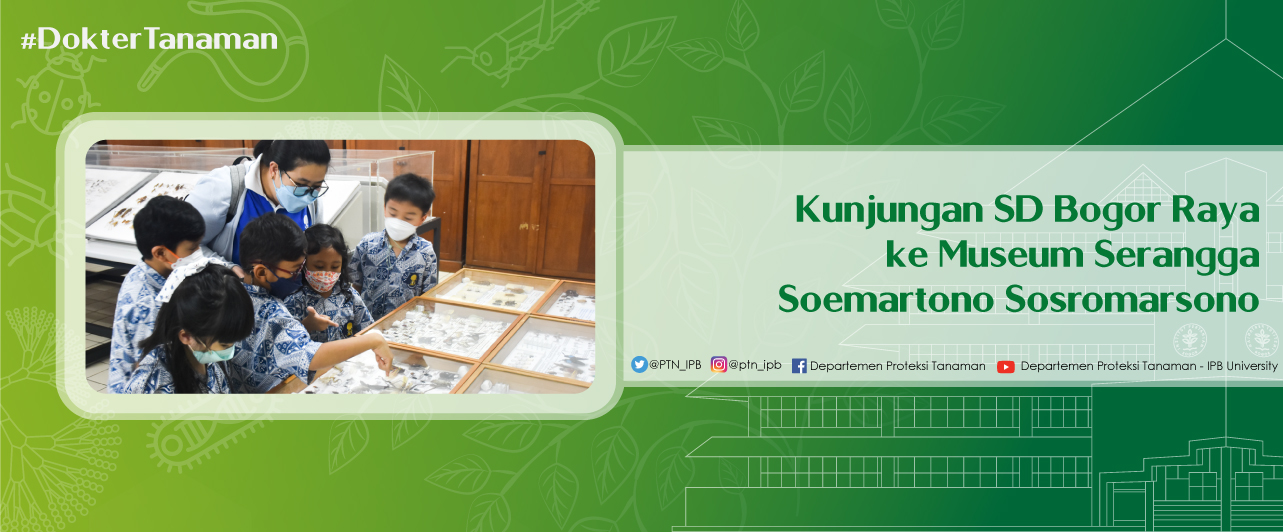
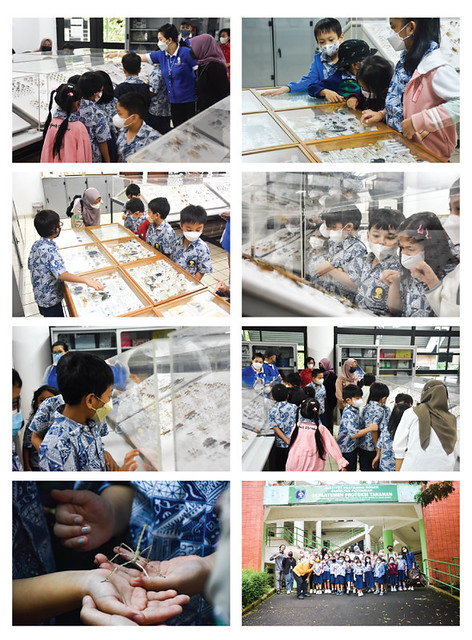
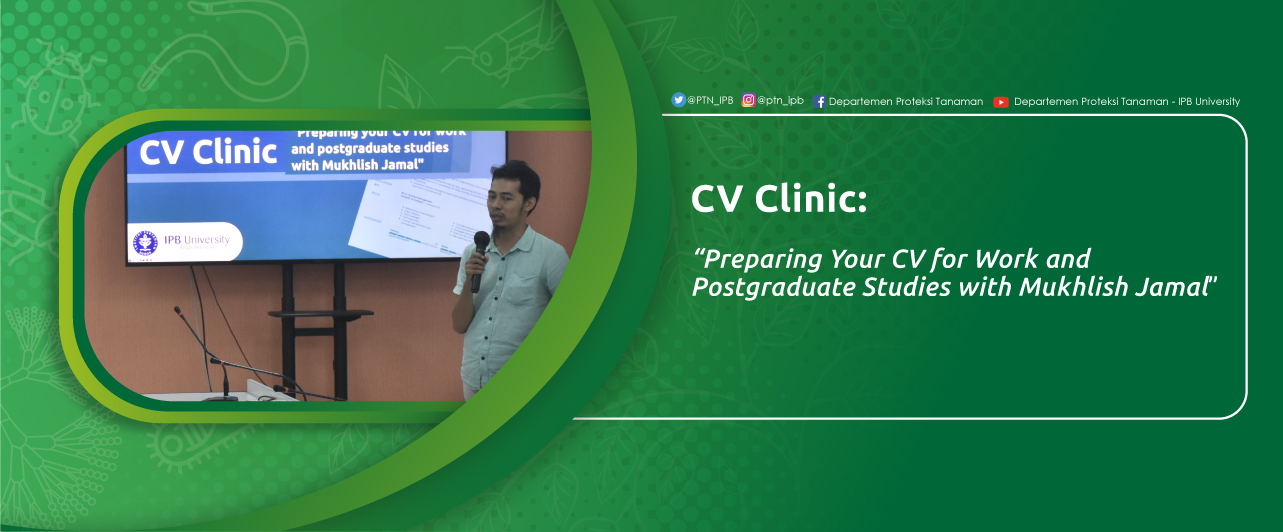
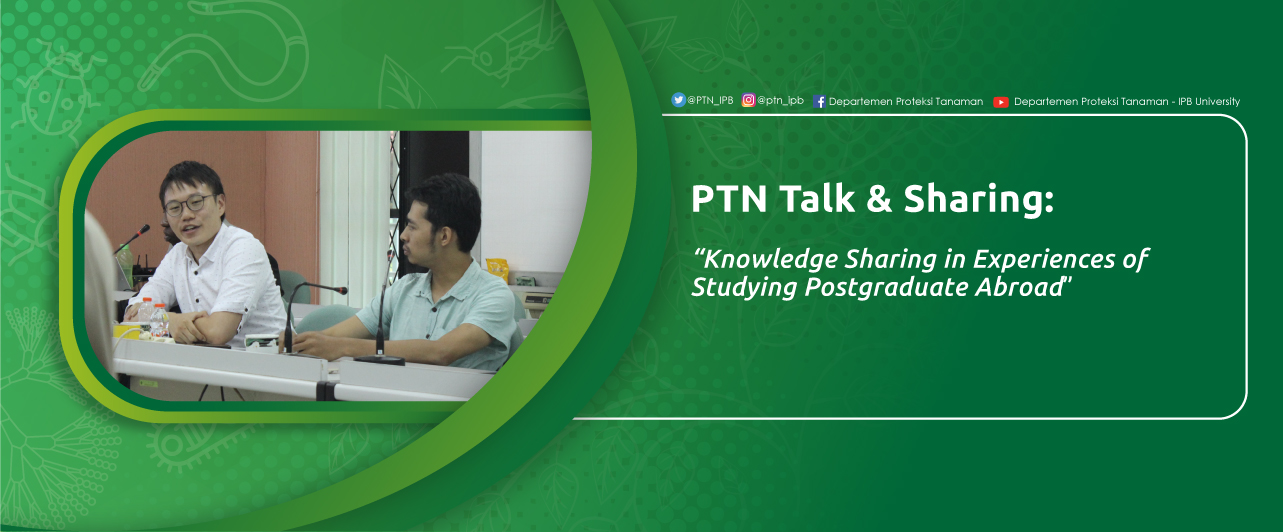
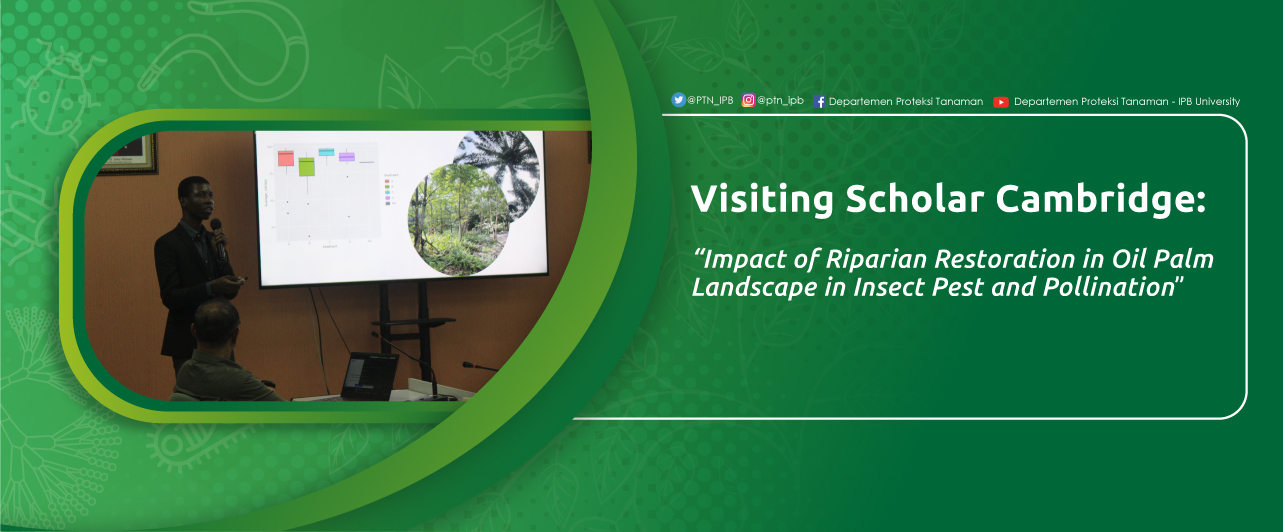
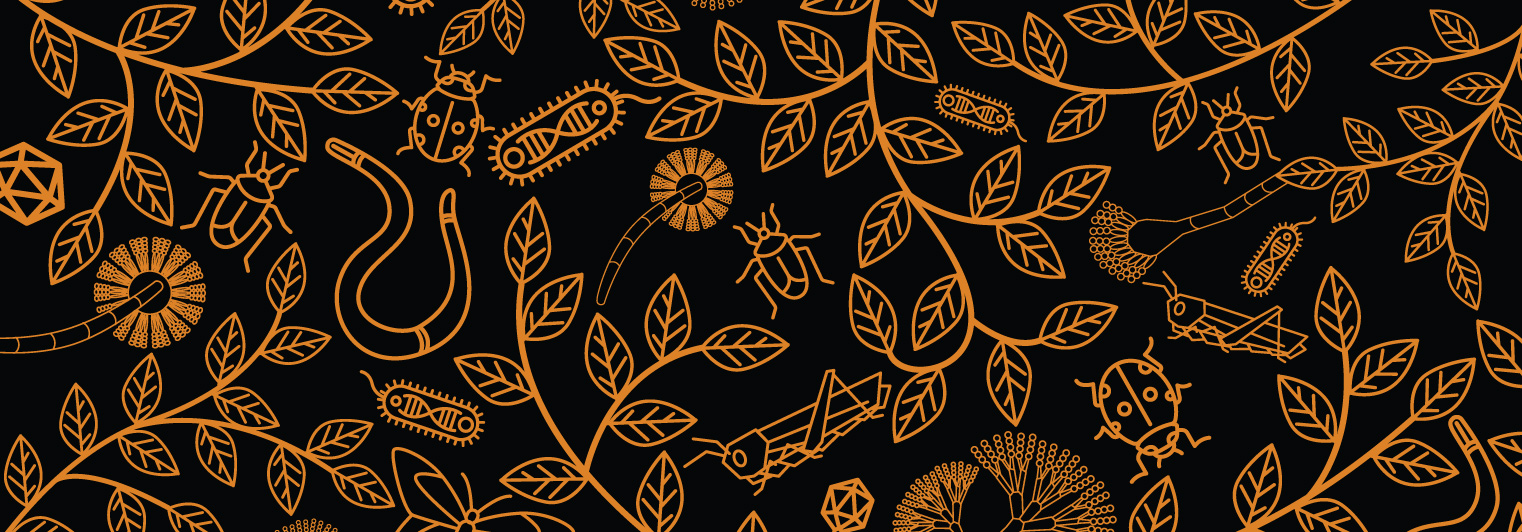
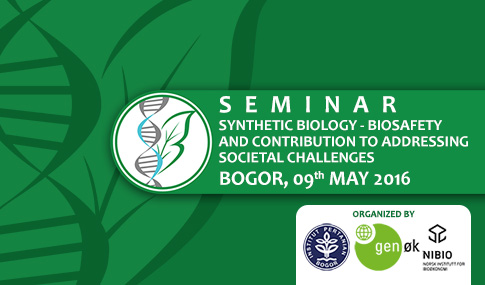
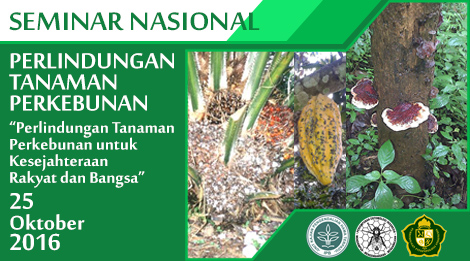

.jpg)